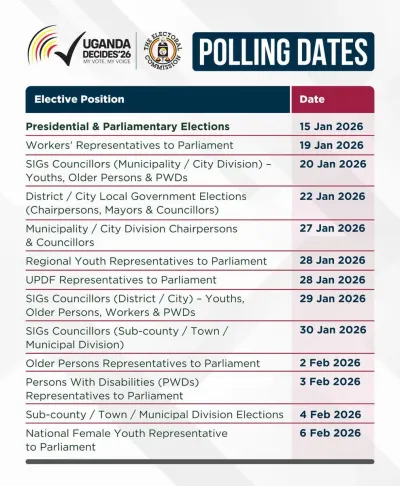

Majority of graduates don’t have jobs
Towards the end of last year, National Water and Sewerage Corporation (NWSC) advertised a few positions for engineers but ended up receiving over seven thousand applications. The entity had to undergo several rounds of selections to get the best of the best of the applicants. this also meant disqualifying those with the requisite qualifications.
Just last week, Qatar Airways posted a call for eight cabin crew or air hostess jobs on the social networking site Facebook. An estimated 2000 young girls and boys turned up at Serena hotel. The hotel’s main conference hall for interviews.
NTV captured the astounding scenes at Serena showing anxious young men and women trying to access an overfilled room with a sitting capacity of 1500 people. Several hundreds were seen struggling to enter the conference hall while others had apparently given up.
The revelations, which apparently rhyme with similar recruitment exercises done in the recent past, are a stark portrayal of the staggering level of unemployment in Uganda.
Experts argue that the apparent high level of joblessness in Uganda portend a ticking time bomb for the country but also reflect the poor state of Uganda’s economy which is unable to create jobs for the hundreds of thousands of young people who graduate from colleges and universities every year.
Ramathan Ggoobi, an economics lecturer at the Makerere University Business School (MUBS) argues that the high number of job seekers are a wake up call to policy makers that their policies are not working.
Ggoobi said: “Those numbers should provide a rude awakening to policy makers and leaders.” Commenting about the response to Qatar’s jobs openings, Ggoobi noted: “I suspect most of those young people are disguising themselves in the informal sector. So whenever they see an opportunity they turn up, because they know they are in the informal sector simply because they are currently holding the “unlucky tickets” to employment but they don’t belong there. That frustrates young people and define the voting trends in many developing countries.”
Ggoobi argued further that the numbers are a sign that the economy is not growing at its potential. “If it did, it would be able to absorb these young people in the private sector. Uganda’s private sector is a hoax,” added Ggoobi.
Ggoobi however cautions against generalizing high turn up for jobs as unemployment. He argues that some of the applicants may be voluntarily jobless because of low wages while others might be employed but simply want better paying alternatives.
“It could also be a sign of mismatch in our labour markets. Schools are producing more unwanted people. You’ll find that perhaps many firms that have “dirty jobs” — manual, skill-oriented — are struggling to get workers, yet those with “clean jobs” like Qatar and NSSF attract them in crowds,”Ggoobi argued.
His argument also raises the issue of Uganda’s education system that continues to encourage white collar jobs as opposed to vocational or skills-oriented jobs.
Reports suggest that Uganda’s economy has stagnated in recent months, partly due to dwindling exports to regional markets such as South Sudan as well as to overseas markets such as Europe.
The Bank of Uganda revealed recently that loan defaults among commercial banks rose by 40% in 2013 from 4.2% to 6% of total loan advances. BoU officials say the increase in Non-Performing Assets or bad debts is a sign of bad state of the economy.
Uganda Revenue Authority (URA) itself has over the past three quarters of the financial year recorded deficits a sign of slow economic activity.
Other observers argue that poor economic management by government officials that is characterised with heavy borrowing from the banking sector to finance the deficit budget, inequitable tax regime and absence of incentives for small and medium enterprises has negatively affected the growth of the private sector and hence hurt job creation.
The level of unemployment in the country also calls into question the viability and sustainability of the recently launched loan scheme by the government for students in Universities. With so few jobs being created in the country, beneficiaries of the loan scheme may never be in position to find gainful employment and pay back so as to keep the programme running and grow.
As the world prepares to commemorate International Labour Day on May 1, Ugandans will be reminded that they have one of the youngest people in the world, the vast majority of whom are jobless. It is estimated that over 400,000 young people graduate from colleges and universities in Uganda only to compete for an estimated 9000 jobs that are created every year.
The Gulu Woman MP Betty Ocan who is also the Shadow Minister for Labour, gender and social development blamed lack of commitment by the NRM government to plan for young people.
“We are not mindful of the youth at all as I speak.” Ocan added: “The little money that would have used to create jobs is stolen by one person.”
Ocan also criticised what she called recycling of ‘expired’ personnel in public offices. Citing the re-appointment of Justice Benjamin Odoki who had reached his retirement age, Ocan said the continued stay into public offices by aged men, deprives the young people of employment opportunities and yet they are expected to carry years of experience while applying for new jobs.
Ocan warned that failure to plan for young people is a recipe for disaster for Uganda since many of them are very energetic and can be a cause of social unrest.














Sunrise Admin
Leave a Comment
Your email address will not be published.